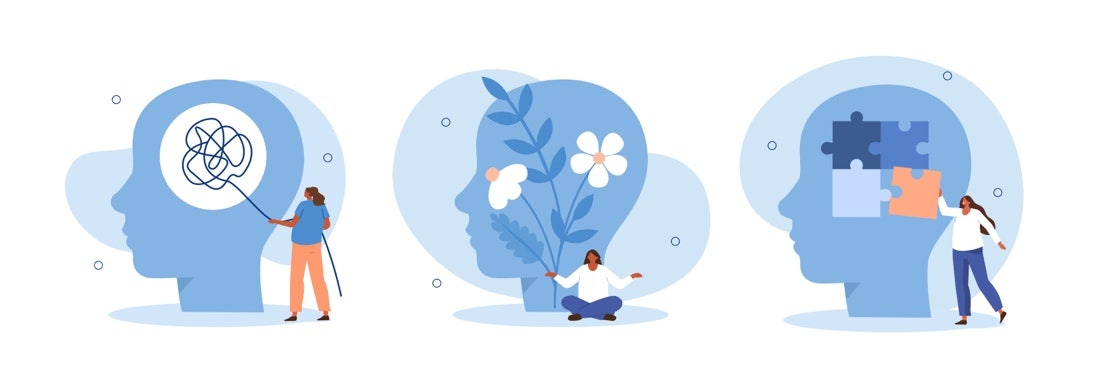Comprehensive Inpatient Mental Health Providers for Effective Treatment
Inpatient mental health and wellness services represent a critical element of the health care system, providing a extensive and structured environment for individuals experiencing extreme emotional distress. These services employ a multidisciplinary method, incorporating different evidence-based therapies to attend to the complex requirements of clients. The performance of such thorough care extends past instant stabilization; it also incorporates the shift to outpatient assistance, a crucial phase often overlooked - Inpatient Mental Health Program. Exploring the nuances of this continuum reveals significant effects for both individual healing and broader psychological health and wellness end results. What factors absolutely affect this shift, and how can we enhance its effectiveness?
Comprehending Inpatient Mental Health And Wellness Services
Inpatient psychological health and wellness services give essential support for individuals experiencing extreme mental distress that can not be managed effectively in an outpatient setup. These services are made to use an intensive degree of treatment in an organized environment, usually within a health center or specialized center. Clients confessed to inpatient programs usually display intense signs, such as self-destructive ideation, serious clinical depression, or psychosis, requiring round-the-clock tracking and intervention.
The admission procedure typically entails an extensive analysis by mental health and wellness professionals, who review the person's frame of mind, history, and prompt needs. When confessed, patients take part in a selection of restorative methods tailored to their certain needs, including medicine monitoring, individual therapy, and team sessions. This holistic method intends to maintain the patient's condition, advertise safety and security, and foster coping abilities.
Inpatient psychological health solutions not only address instant health problems but likewise work as a bridge to recurring care. By offering a regulated setting, these solutions facilitate the advancement of treatment strategies that can be proceeded in outpatient setups, hence guaranteeing a continuum of care and enhancing long-term outcomes for individuals with complicated mental health and wellness demands.
Trick Elements of Effective Therapy
Effective treatment in inpatient mental health services comprises several key components that foster healing and stabilization. An extensive assessment is important to identify the individual's certain requirements and obstacles. This analysis informs the development of a customized therapy plan, which acts as a roadmap for treatment.
An additional important part is the multidisciplinary team approach. Cooperation amongst psychiatrists, psychologists, registered nurses, and social employees makes certain that various perspectives add to the individual's care, boosting the efficiency of treatment. Evidence-based therapeutic techniques, such as cognitive-behavioral therapy (CBT) and dialectical behavior modification (DBT), are also indispensable, supplying structured strategies that deal with maladaptive idea patterns and behavioral concerns.

Lastly, an emphasis on aftercare planning is essential to ensure a smooth transition to outpatient solutions, lessening the risk of relapse and promoting long-term health. These collective parts create a reliable treatment structure within inpatient mental health solutions.
Benefits of Comprehensive Treatment

Detailed treatment in inpatient mental health and wellness solutions supplies numerous benefits that dramatically boost individual end results. Among the primary advantages is the alternative technique to therapy, resolving not only the psychological signs however additionally the physical, social, and psychological demands of patients. This extensive evaluation permits tailored interventions that promote overall well-being.
Another benefit is the integration of multidisciplinary teams, which fosters partnership among health care experts. This collective setting ensures that patients receive coordinated treatment, reducing the danger of fragmented therapy and improving communication among caregivers. Additionally, extensive care facilitates connection of solutions, permitting for smooth shifts from inpatient to outpatient settings, which is important for long-lasting recovery.

Last but not least, the organized atmosphere of detailed inpatient treatment supplies a risk-free area for clients to engage in therapeutic activities, aiding them create dealing methods and durability. Collectively, these benefits add to much more reliable therapy and enhanced high quality of life for individuals experiencing psychological wellness dilemmas.
Evidence-Based Restorative Approaches
In the world of mental health therapy, evidence-based healing techniques play an important role in ensuring that people get effective and scientifically sustained interventions. These approaches incorporate the finest available research study with medical proficiency and patient worths, fostering a customized treatment experience that attends to private demands.
Cognitive Behavior Modification (CBT) is one of the most extensively recognized evidence-based techniques, concentrating on determining and transforming negative thought patterns and actions. This organized method has actually shown efficiency in treating conditions such as ptsd, depression, and anxiety. In A Similar Way, Dialectical Actions Treatment (DBT) is particularly effective for individuals with borderline character condition, highlighting the advancement Continue of psychological guideline and social performance abilities.
Additionally, medication management is usually an integral part of evidence-based therapy, as psychotropic medicines can ease signs and enhance overall functioning. Joint treatment designs, which involve multidisciplinary groups, even more boost the efficiency of inpatient solutions by making sure extensive assessments and continuous surveillance.
Inevitably, the combination of evidence-based therapeutic strategies not just promotes positive professional results but additionally equips clients, fostering a feeling of company and resilience in their psychological wellness journeys.
Transitioning to Outpatient Assistance
The shift from inpatient mental wellness services to outpatient more assistance marks a critical stage in a client's recuperation trip. This period calls for careful preparation and sychronisation to make certain continuity of treatment and to alleviate the risks of relapse or situation. Efficient discharge preparation must commence early in the inpatient remain, involving a multidisciplinary team that consists of psychiatrists, psycho therapists, nurses, and social employees.
Key aspects of an effective transition consist of the growth of a thorough aftercare strategy tailored to the person's details requirements. This plan ought to outline follow-up appointments, drug management, and healing treatments, as well as determine area resources and support teams that can facilitate continuous healing.
Moreover, individual and family members education is important throughout this stage. Recognizing the signs of prospective obstacles and the relevance of adhering to treatment can empower individuals and their support group.
Normal follow-up and reassessment of the outpatient plan are necessary to attend to advancing challenges. By fostering a collaborative connection between outpatient and inpatient carriers, the probability of continual recuperation rises, inevitably boosting the person's lifestyle and lowering the threat of readmission.

Conclusion
In summary, extensive inpatient psychological wellness services supply a necessary structure for resolving extreme emotional distress via a multidisciplinary strategy. Inevitably, such thorough treatment is crucial for long-lasting mental health and wellness and wellness.
The admission process typically involves an extensive assessment by mental wellness experts, that examine the person's mental state, history, and hop over to these guys prompt needs.Effective therapy in inpatient psychological health and wellness services comprises numerous crucial elements that foster recuperation and stabilization.Extensive treatment in inpatient mental health solutions provides numerous benefits that dramatically boost client outcomes.The change from inpatient mental wellness solutions to outpatient support notes a vital phase in an individual's healing trip.In recap, extensive inpatient psychological health and wellness solutions use an important structure for dealing with severe mental distress through a multidisciplinary technique.